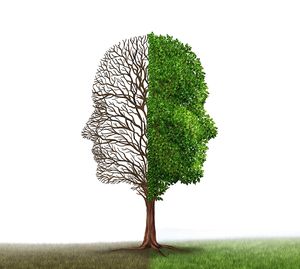May 14, 2019: Difference between revisions
No edit summary |
m (Tweaks.) |
||
| (One intermediate revision by the same user not shown) | |||
| Line 1: | Line 1: | ||
{{Large|''Mindset'' Questionnaire}} | {{Large|''Mindset'' Questionnaire}} | ||
As part of the reading/discussion group I participated in this year, we have follow-up questions to answer. We read Carol Dweck’s ''Mindset'', and most of our conversations considered how her discussion relates to our approach to graduate instruction. | {{Big|As part of the reading/discussion group I participated in this year, we have follow-up questions to answer. We read Carol Dweck’s ''Mindset'', and most of our conversations considered how her discussion relates to our approach to graduate instruction.}} | ||
{{FH}} | |||
[[File:Mindset-tree.jpg|thumb]] | |||
{{quote|Do you plan or have you made a change in your classroom (or other work), syllabus, assignment, activity, or course material as a result of your participation in the FLC?}} | {{quote|Do you plan or have you made a change in your classroom (or other work), syllabus, assignment, activity, or course material as a result of your participation in the FLC?}} | ||
Latest revision as of 05:30, 30 January 2020
Mindset Questionnaire
As part of the reading/discussion group I participated in this year, we have follow-up questions to answer. We read Carol Dweck’s Mindset, and most of our conversations considered how her discussion relates to our approach to graduate instruction.
Do you plan or have you made a change in your classroom (or other work), syllabus, assignment, activity, or course material as a result of your participation in the FLC?
No, not really. However, I have tried to adopt a more growth mindset in the way I approach my classroom interactions and evaluations.[1] I try to emphasize encouragement and improvement in my approach. For example, grades should not be written in stone: students should have a chance to make mistakes, learn from them, and improve. Most of my assignments allow for revision and resubmission. Likewise, I try to take a holistic approach to semester grades: if students show growth and improvement, I tend to weigh the grades more toward their latter work. Risk and effort are as important as getting the “correct answer”;[2] it’s the process that counts.[3]
What do you hope to accomplish with this change or innovation (i.e. your goal)?
I want students to grow as individuals through persistence, enthusiasm, and application. I'd like for them to care less how they’ll be judged, and more on improving.[4] My job as an instructor is to (1) inspire a way for students to engage with the course materials, (2) foster in them a curiosity that extends beyond the classroom, and (3) instill a desire for community engagement. Success takes effort, hard work, and often struggle — there is rarely such a thing as natural ability.[5]
If already made, did this change or innovation meet your expectations?
Yes, I implemented this approach in my online graduate course, Writing and Publishing in Digital Environments, this spring. The work in the course is challenging, and I tried to be there to encourage and assist whenever I could. Wikipedia’s motto for editors is “be bold!” and I emphasized consistent work, learning something new everyday, communication, and grit. They became allies and encouraged one another, and while there was some frustration, most overcame their difficulties through persistence.
What do you hope the outcome will be for your students?
I want them to develop their own growth mindset: to realize that what is worth doing is worth making an effort for. And that many things are worth doing. The process is important, and mistakes are not something to be afraid or ashamed of. Missteps are integral to the learning process. Obstacles are not to be avoided — they are there to make us better and stronger: they allow us to grow is a positive way.[6]
What effect did your participation in this FLC have on your teaching?
See above.
Citations
- ↑ Dweck 2016, p. 7.
- ↑ Dweck 2016, p. 10.
- ↑ Dweck 2016, p. 215.
- ↑ Dweck 2016, p. 13.
- ↑ Dweck 2016, pp. 40–41, 63.
- ↑ Dweck 2016, p. 217.
Work Cited
- Dweck, Carol S. (2016). Mindset: The New Psychology of Success. New York: Ballantine Books.
